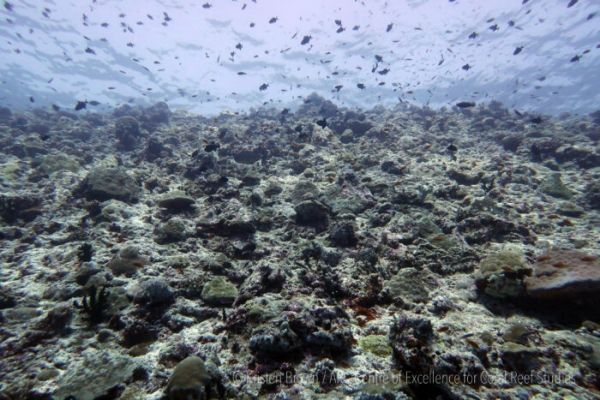A team of researchers led by Associate Professor Sophie Dove from the ARC Centre of Excellence for Coral Reef Studies at The University of Queensland (Coral CoE at UQ) investigated the ability of coral reef ecosystems to retain deposits of calcium carbonate under current projections of warming and ocean acidification.
Calcium carbonate is what skeletons are made of—and it dissolves under hot, acidic conditions. Marine animals that need calcium carbonate for their skeletons or shells are called ‘calcifiers’. Hard corals have skeletons, which is what gives reefs much of their three-dimensional (3D) structure. It’s this structure that helps protect coasts—and those living on the coasts—from the brunt of waves, floods and storms. Without coral reefs the coasts ‘drown’.
A/Prof Dove says the amount of calcium carbonate within a coral reef ecosystem depends on the biomass of hard corals. But it also depends on the combined impact of warming and acidification on previously deposited calcium carbonate frameworks.
Continue reading at ARC Centre of Excellence Coral Reef Studies
Image via ARC Centre of Excellence Coral Reef Studies


